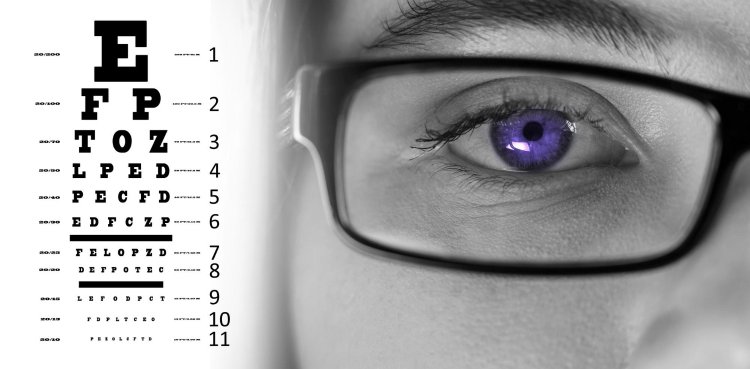Clearing the Vision: Understanding Macular Degeneration
Macular degeneration is a progressive eye disease that affects the macula, the central part of the retina responsible for sharp central vision. It is particularly prevalent among older adults and significantly impacts daily activities such as reading and driving.

Overview of Macular Degeneration
Macular degeneration can be categorized into two main types: dry AMD and wet AMD. Dry AMD is characterized by the gradual accumulation of drusen (yellow deposits) in the macula, leading to a slow deterioration of central vision over time. On the other hand, wet AMD involves the growth of abnormal blood vessels beneath the retina, which can cause sudden and severe central vision loss due to leakage of fluid and blood.
Causes and Risk Factors
The primary risk factor for macular degeneration is age, with incidence increasing significantly after the age of 50. Genetic predisposition also plays a role, with certain genetic variations increasing the likelihood of developing AMD. Lifestyle factors such as smoking, a diet high in saturated fats and low in nutrients, and prolonged exposure to sunlight (UV rays) without protection are also linked to a higher risk of AMD.
Symptoms of Macular Degeneration
Early signs of macular degeneration may include blurred or fuzzy central vision, difficulty recognizing faces, and seeing straight lines as wavy or distorted. As the condition progresses, individuals may experience a gradual loss of central vision in one or both eyes and, in some cases, visual hallucinations (Charles Bonnet syndrome).
Diagnosis
Diagnosing macular degeneration typically involves a comprehensive eye examination, which includes tests to assess visual acuity and the health of the retina. The Amsler grid test is often used to detect early signs of AMD by checking for any distortion or missing areas in central vision. Imaging tests such as optical coherence tomography (OCT) provide detailed cross-sectional images of the retina, helping to confirm the presence and extent of AMD.
Treatment Options
Treatment for macular degeneration varies depending on the type and severity of the condition. For dry AMD, management focuses on lifestyle changes such as adopting a diet rich in antioxidants, vitamins (especially vitamins C and E), zinc, and copper, as well as quitting smoking. In cases of wet AMD, treatment options include anti-VEGF therapy, which involves injecting medication into the eye to inhibit the growth of abnormal blood vessels, and photodynamic therapy, where laser treatment is combined with a light-sensitive medication to target and destroy abnormal blood vessels.
Prevention Strategies
Preventing macular degeneration involves adopting healthy lifestyle habits such as maintaining a balanced diet that includes fruits, vegetables, and omega-3 fatty acids, engaging in regular physical activity, and quitting smoking. Protecting the eyes from UV rays by wearing sunglasses with UV protection and undergoing regular eye exams to detect early signs of AMD are also crucial preventive measures.
Living with Macular Degeneration
Coping with macular degeneration involves employing various strategies to maintain independence and quality of life. This includes utilizing low vision aids such as magnifiers, electronic devices, and adaptive technology, as well as seeking support from vision rehabilitation services and joining support groups. Emphasizing the importance of psychological support and adapting daily routines and activities to accommodate changes in vision is also essential for individuals living with AMD.
Research and Future Directions
Ongoing research efforts are focused on developing new therapies and treatment approaches for macular degeneration. Clinical trials are exploring innovative treatments targeting the underlying mechanisms of AMD, including genetic studies to identify new risk factors and potential therapeutic targets. Patient advocacy and support play a crucial role in advancing research efforts and improving outcomes for individuals affected by AMD.
In conclusion, understanding macular degeneration involves recognizing its impact on vision and quality of life, emphasizing the significance of early detection through regular eye exams, and highlighting advancements in treatment options and ongoing research endeavors. Encouraging proactive management and lifestyle choices to reduce the risk of AMD is essential for promoting eye health and preserving vision.
Disclaimer: The information provided in this article is for educational purposes only and should not be considered medical advice. If you have any health concerns or are experiencing symptoms, it is important to consult with a healthcare professional, such as a doctor or clinic, for proper diagnosis and treatment. Always seek the advice of your doctor or other qualified health provider with any questions you may have regarding a medical condition. Do not disregard professional medical advice or delay in seeking it because of something you have read in this article.
#Hashtags: #MacularDegeneration #EyeHealth #VisionCare #AMD #HealthyLiving #EyeExams #VisionLoss #EyeCare #PreventAMD #LowVisionAids #ResearchAndDevelopment #MedicalDisclaimer
What's Your Reaction?





















